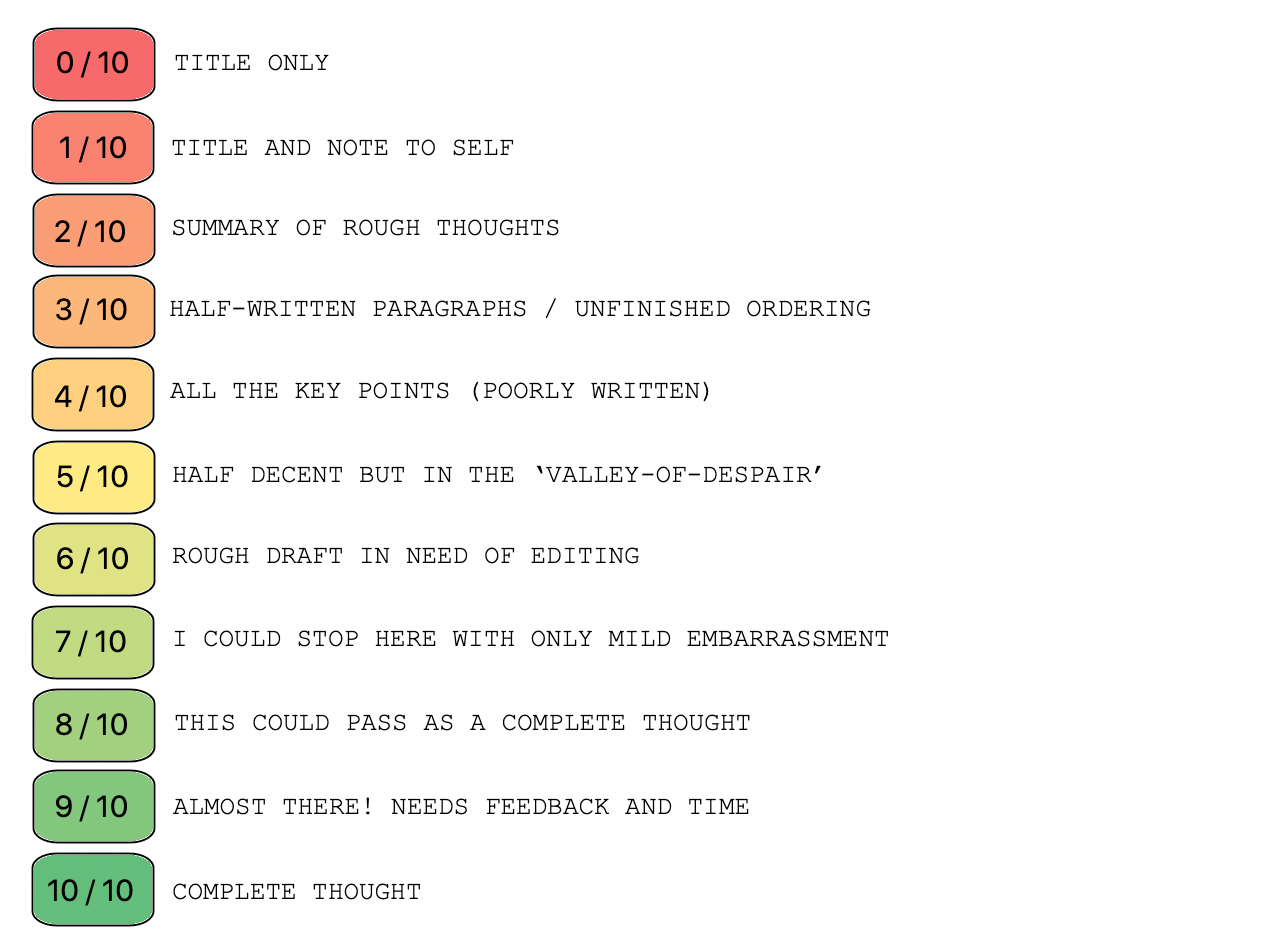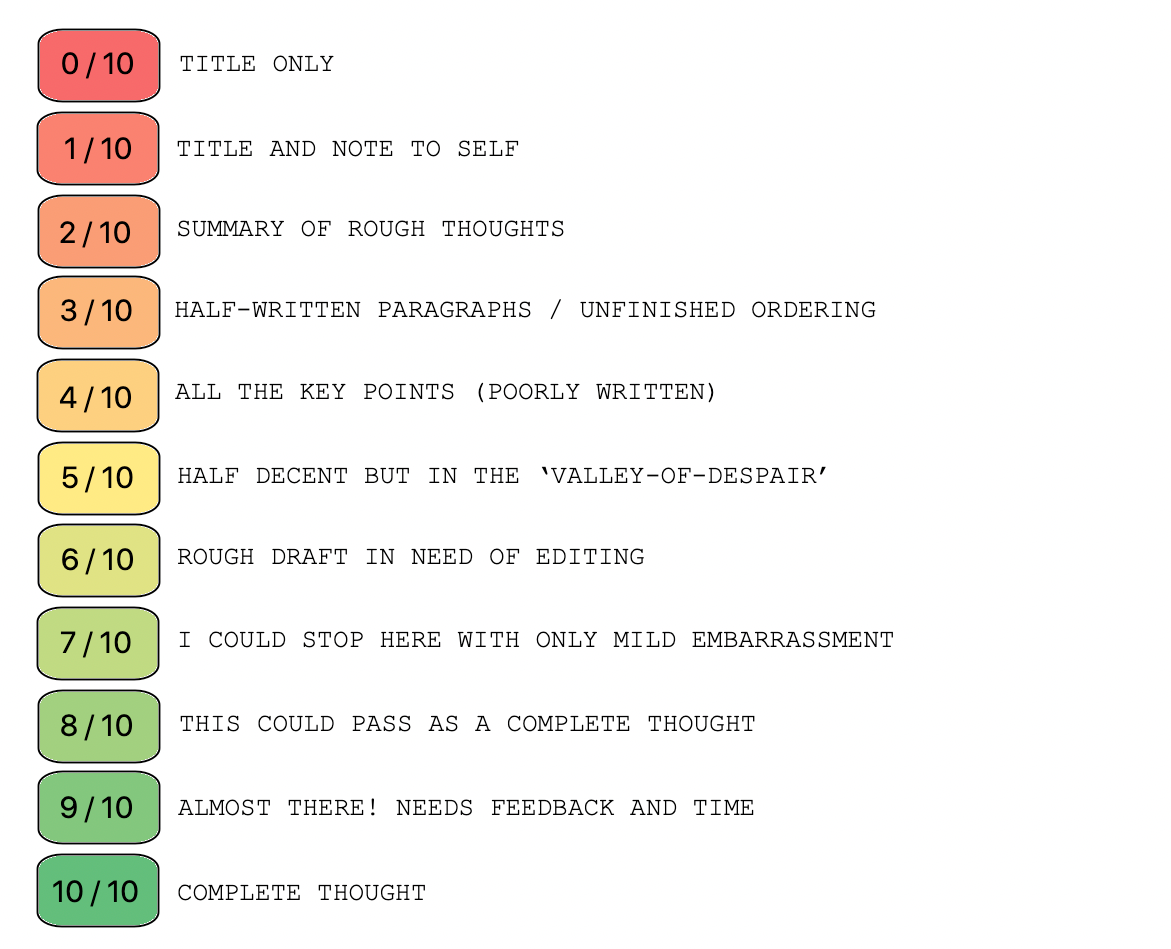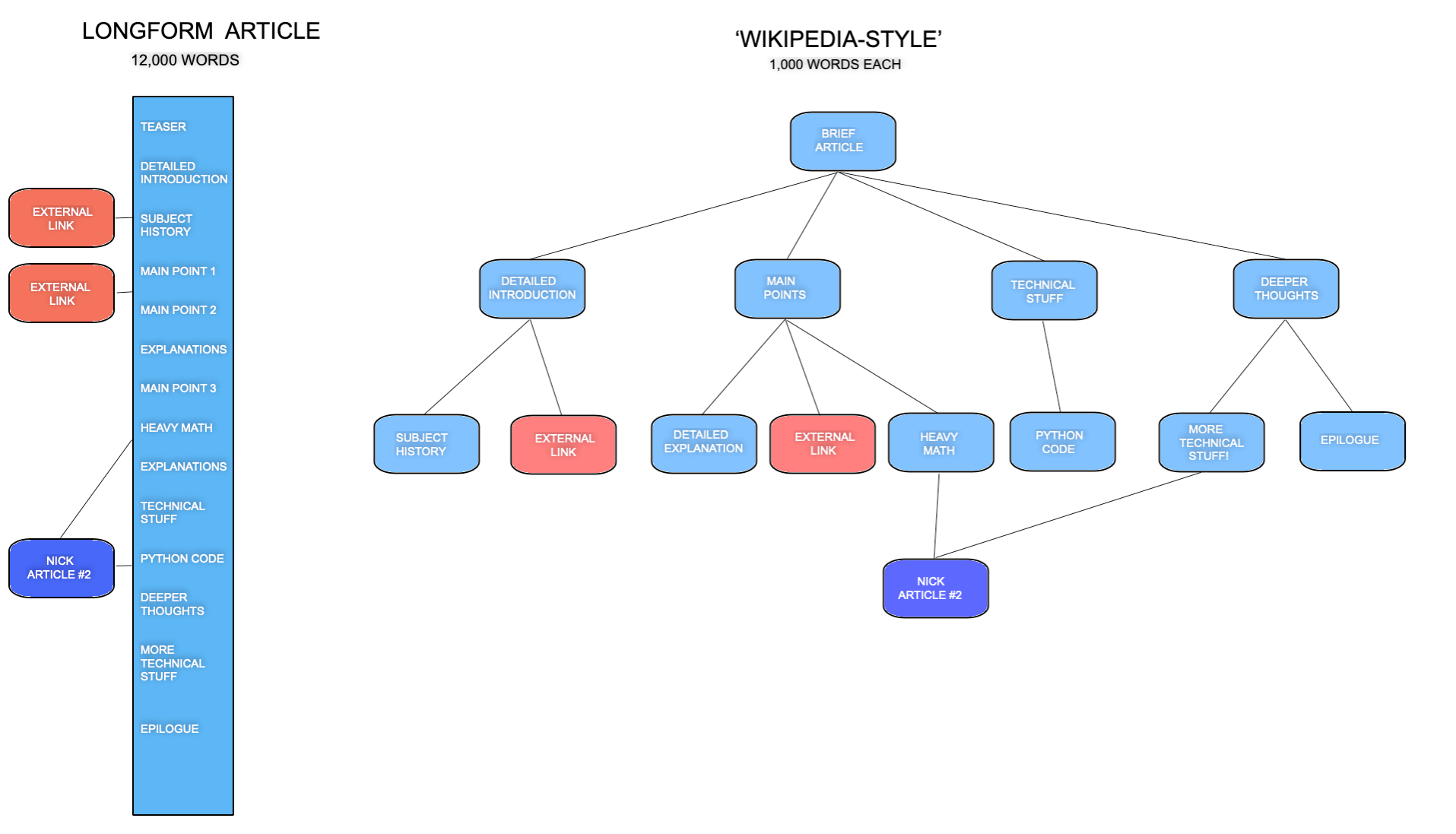10-Point Scale & Wikipedia
Perfectionism is killing me...

Perfectionism is killing me...
I have a terrible habit of starting projects and refusing to publish them. I want them to be perfect or 'complete'.
As of this morning, there are 441 article drafts for my site with only 3 published!

The Strategy
Combat my OCD by launching two experiments simultaneously:
- Publish drafts before they are 100% perfect
- Break up very long articles into a friendly "Wikipedia-style" tree structure
10-Point Scale
The new strategy: Publish ideas instantly
Each new article will go to the website 24 hours after I get the idea, no matter how much (or little) progress I've made.
At the top of each article a sticker will indicate the stage of completeness.

By pushing a project into the sunlight, I am forced to either keep improving it or allow it's imperfection to languish publicly.
My goal is to turn OCD/Perfectionism into a Weapon of Productivity!

I'm pretty excited about this new tactic! These are the advantages anticipated:
- Faster output
- More feedback/engagement from friends
- There will ALWAYS be some obvious next steps
- No more indecision about when to finally push a project out the door
The publish timestamp + progress sticker will tell the world if I've been slacking.
Wikipedia
The new strategy: Bite size
For technical subjects, it's hard to find the right balance between brevity, clear explanation and useful development of an idea.
Some articles are dense and technical with a narrow audience.
Others are fluffy with fun titles but almost no useful information.
I tend toward the third sin: Technical articles, clearly explained, over an insanely long 8-part 25,000-word series....
Either way, the result is the same: Few readers gain from the experience.
The second experiment will be organizational: Break apart these monolith long-form articles and organize them into some like a network of short Wikipedia articles.
At the root will be a simple article with an introduction, brief story arc and conclusion.
Within each part, include links to explanations, historical vignettes, more examples, Python code, etc...

In this way, an interested reader can thread through the material efficiently and without wasting their attention span.
Technical readers may skip the examples and dive into the heavy stuff.
A casual reader may enjoy the story and skip to the conclusions.
A graduate student with career ambitions might read every part of it, or return for multiple sessions.
For the curious, I would rate this article:

Conclusion
Please reach out to me at: nickyoder10@gmail.com
Follow on Twitter: @NickYoder86
All thoughts and feedback are appreciated!

